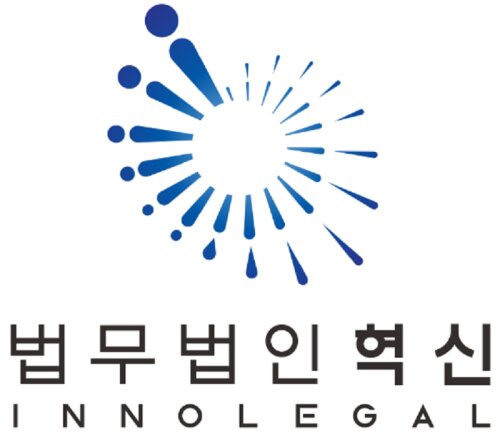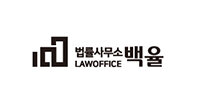Best Franchising Lawyers in South Korea
Share your needs with us, get contacted by law firms.
Free. Takes 2 min.
Or refine your search by selecting a city:
List of the best lawyers in South Korea
About Franchising Law in South Korea
Franchising in South Korea has become an increasingly popular business model, offering opportunities for both local and international brands to expand their presence. The South Korean franchise market is well-established, with a diverse range of sectors including food and beverage, retail, and services. As franchising grows, the regulatory framework surrounding this business model has evolved to ensure fair practices, protect franchisees, and maintain market order. The primary legal framework governing franchising in South Korea is the Fair Transactions in Franchise Business Act, which sets forth the rights and responsibilities of franchisors and franchisees.
Why You May Need a Lawyer
Engaging in franchising involves complex legal agreements and regulatory compliance, making legal advice invaluable in several situations:
- When drafting or reviewing franchise agreements to ensure they are fair and compliant with local laws.
- During negotiations between franchisors and franchisees to assist in reaching mutual agreements.
- If disputes arise relating to contract breaches or operational disagreements.
- To help navigate compliance with local regulations and reporting requirements.
- For guidance on intellectual property protection in the franchise context.
- To provide insight into litigation or mediation processes if conflicts escalate.
Local Laws Overview
The legal environment for franchising in South Korea is primarily governed by the Fair Transactions in Franchise Business Act. Key aspects include:
- Disclosure Requirements: Franchisors must provide prospective franchisees with a disclosure document containing comprehensive details about the franchise system and its financial status.
- Registration of Franchise: Franchisors are required to register their franchise with the Fair Trade Commission (FTC) before commencing franchise operations.
- Standard Form Contracts: The franchise agreement must incorporate specific items as stipulated by law to protect franchisees.
- Termination and Renewal: Regulations dictate fair practices for the termination and renewal of franchise agreements, mitigating potential exploitation.
- Dispute Resolution: Guidelines are provided for resolving disputes through mediation or arbitration to avoid lengthy litigation.
Frequently Asked Questions
What is a franchise agreement?
A franchise agreement is a legally binding document that outlines the terms and conditions between a franchisor and a franchisee, detailing the obligations of both parties, operational guidelines, and financial arrangements.
Are there mandatory disclosure requirements for franchisors in South Korea?
Yes, franchisors must provide a comprehensive disclosure document to potential franchisees. This document includes vital information about the franchise, such as financial performance, fees, and franchisor background.
How long is the typical franchise term in South Korea?
The franchise term can vary depending on the agreement but is typically around 3 to 5 years, with options to renew contingent on mutual agreement.
What are the consequences of not registering a franchise with the FTC?
Failure to register the franchise with the FTC may result in penalties, and the franchise agreement may be deemed invalid, leading to potential legal disputes.
Can a franchisor terminate a franchise agreement at will?
No, a franchisor must have legitimate reasons as specified in the franchise agreement and comply with legal procedures to terminate the agreement to protect franchisee rights.
How is a franchisee protected under South Korean law?
The Fair Transactions in Franchise Business Act provides various protections, such as mandatory disclosures by franchisors, standards for fair contract terms, and rules against unreasonable termination.
What should I do if my franchisor is not complying with the agreement?
Seek legal advice to understand your rights and the options for dispute resolution, including mediation or legal proceedings, to resolve the issue.
Are there specific financial obligations for franchisees?
Franchisees are usually required to pay initial franchise fees, ongoing royalty payments, and contribute to a marketing fund as outlined in the franchise agreement.
How important is intellectual property protection in a franchise?
Intellectual property protection is crucial as it safeguards the brand identity, trademarks, and proprietary information essential to the franchise system’s success.
What recourse do I have if I want to exit a franchise agreement?
Review the agreement for exit clauses and seek legal counsel to negotiate terms or explore transfer or resale options that align with the contract provisions.
Additional Resources
For further information and assistance, consider reaching out to:
- Fair Trade Commission (FTC): The main regulatory body overseeing franchise operations in South Korea.
- Korea Franchise Association: An organization offering support and resources for franchise businesses.
- Legal Professionals and Law Firms: Specializing in franchise law to provide tailored legal advice and representation.
Next Steps
If you need legal assistance in franchising in South Korea, consider taking the following steps:
- Consult with a Franchise Lawyer: Seek a professional specializing in franchise law to assess your specific needs and challenges.
- Gather Relevant Documentation: Collect any contracts, communications, and documents related to your franchise dealings to ensure comprehensive legal advice.
- Schedule a Legal Consultation: Set up a meeting with your lawyer to discuss your situation and develop a strategy moving forward.
- Stay Informed: Regularly review and update your knowledge of relevant franchise laws and regulations to remain compliant and proactive.
Lawzana helps you find the best lawyers and law firms in South Korea through a curated and pre-screened list of qualified legal professionals. Our platform offers rankings and detailed profiles of attorneys and law firms, allowing you to compare based on practice areas, including Franchising, experience, and client feedback.
Each profile includes a description of the firm's areas of practice, client reviews, team members and partners, year of establishment, spoken languages, office locations, contact information, social media presence, and any published articles or resources. Most firms on our platform speak English and are experienced in both local and international legal matters.
Get a quote from top-rated law firms in South Korea — quickly, securely, and without unnecessary hassle.
Disclaimer:
The information provided on this page is for general informational purposes only and does not constitute legal advice. While we strive to ensure the accuracy and relevance of the content, legal information may change over time, and interpretations of the law can vary. You should always consult with a qualified legal professional for advice specific to your situation.
We disclaim all liability for actions taken or not taken based on the content of this page. If you believe any information is incorrect or outdated, please contact us, and we will review and update it where appropriate.
Browse franchising law firms by city in South Korea
Refine your search by selecting a city.
















